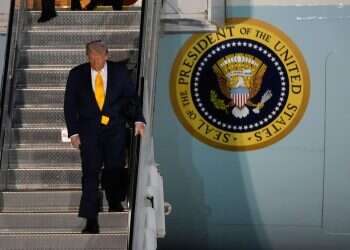As preparations for a military confrontation between Iran and its proxies and Israel reach their peak, and in parallel with the bolstering of its military capabilities in the region, the United States is also intensifying its diplomatic efforts. These efforts aim to formulate an agreed-upon formula that will help promote a general ceasefire and, at the very least, prevent deterioration into a regional war.
It appears that Washington is seeking to leverage the tensions with Iran to accelerate the promotion of a regional arrangement that would also include Gaza. It can be assumed that administration officials are trying to secure Israeli agreement to end the war in the Gaza Strip in a way that would allow the Iranians to market it as an achievement following their involvement, and in exchange for their agreement to freeze or moderate their revenge operation for the elimination of Ismail Haniyeh. From the American perspective, such a formula, combined with the authentic concerns of the Tehran regime about getting entangled in a wider war (and perhaps with additional promises from the US), could provide the Iranians with a respectable ladder to climb down from the high tree they've climbed.
Such a formula could pave the way for easing regional tensions and would include: a roadmap for ending the war in Gaza, the release of hostages, an agreed solution on the northern front, and calm with the Houthis as well. Reinforcement for this line of thinking can be found in the words of US Secretary of State Anthony Blinken, who, in his statement this week, spoke in one breath about efforts to ease tensions with Iran and progress in negotiations for a ceasefire in Gaza.
Slim chance for a de-escalation formula
However, the chances of reaching such an arrangement are slim. First, from Iran's side – it is highly doubtful whether the compensation in Gaza will satisfy the Iranians' thirst for revenge after the severe blow to their national pride and after the belligerent declarations made by regime officials, one after another. Moreover, from their perspective, such a formula does not address the need to renew the "deterrence equation" against Israel.
Second, regarding Hezbollah, if Iran does not respond to Haniyeh's elimination, it will then expect part of the price for this to be exacted through Hezbollah's revenge attack for the elimination of Fuad Shukr. Under such circumstances, it is difficult to see Hezbollah leader Hassan Nasrallah settling for a moderate response to the two assassinations and then being willing to discuss withdrawing his forces from the border with Israel.
Third, the question of whether concessions in Gaza are appropriate on Israel's part and whether it is right to use them as "compensation." Assuming that the political echelon in Israel adheres to its positions, then the ceasefire in Gaza should be limited in time and without giving up Israeli control over the Philadelphia Corridor and the Netzarim Corridor. At this point in time, concessions beyond this on Israel's part will provide a lifeline to Hamas and allow it to recover, consolidate its governance, and renew military capabilities as well. Assuming that the justified insistence on these positions will still allow reaching a deal, it is not certain that, in the eyes of the Iranians, such a deal is sufficient compensation.
Ismail Haniyeh is just the straw that broke the camel's back
Fourth and above all, the current clash between Israel and the Islamic Republic, although occurring in the wake of accusations about Haniyeh's assassination, has deeper roots, and its causes lie in the aggressive moves the regime is taking to realize its vision of achieving regional hegemony and destroying Israel. The ring of fire that this regime has built around Israel through its many proxy forces is one component. Its significance was well demonstrated in the current war. The additional component is the regime's advanced efforts to acquire nuclear weapons. Solutions that do not address these root problems will not hold up, and from Israel's perspective, it is not certain that achieving quiet at such a price is worthwhile.
Faced with the current threats from Iran and Hezbollah, the Israeli system has so far acted responsibly, seriously, and confidently. Iran's moves pose an existential threat to Israel, and after emphasizing this in every possible forum, Israel is behaving as required in the face of such a threat, demonstrating determination, self-confidence, high intelligence, and operational capabilities. In Iran and Lebanon, they are well aware of the damage Israel can inflict on their critical infrastructures. Presumably, they take this into account when planning their steps.
There is also the possibility of an escalation that will force the US to increase its involvement in the fighting. The Iranian threat is a central challenge for Israel, but not only for Israel. Iran is a key player in shaping the axis of countries opposing the US and the West. Its influence and actions do not stop at the borders of the Middle East. They can be seen in the war in Ukraine and in dealings with countries in Africa, Asia, and South America. And this is even without it possessing nuclear weapons. The US has a key role not only in restraining Iran but also in dealing with the root problem – the ayatollah regime.
Washington's desire to prevent a regional war and their expectation from Israel to avoid moves that will drag the US into such a war requires a fundamental and rapid response to the threats posed by Iran. An effective effort led by the US against the Iranian octopus – this is also Israel's strategic preference, although there are red lines whose crossing will compel Israel to act. This is well understood in Tehran, Beirut, and Washington.




